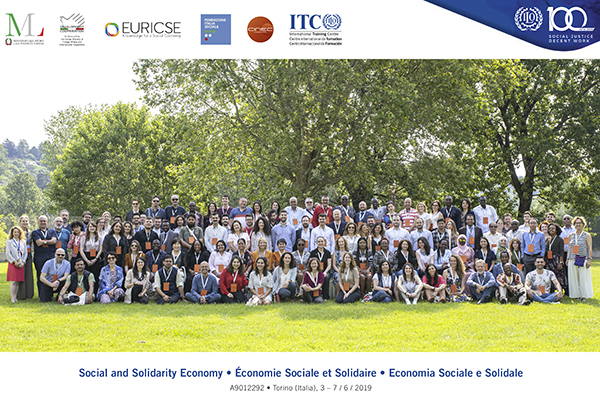The potential of the Social and Solidarity economy to boost the ILO’s Decent Work Agenda
The global economy is experiencing significant economic, technological and demographic changes. Not only has the unemployment rate grown faster in the last decade, but also new “mini-jobs” related to the “gig-economy” are emerging, characterized by non-standard forms, low wages and great instability.
In this context, social and solidarity economy (SSE) organizations have demonstrated the ability to provide high quality and stable jobs, to expand into new sectors and to innovate in response to social needs. Indeed, they have shown significant growth during the phases of economic recession. This is particularly true in Italy where the number of workers employed by social economy and Third Sector organizations rose after the 2008 economic crisis. Italy has come to be considered a model in Europe, also considering the government policies that support social enterprises.
For these reasons, from 3 to 7 June 2019, Italy hosted the 10th edition of the Academy on Social and Solidarity Economy organized by ITC-ILO. Euricse was a partner of this edition along with the Italian Ministry of Labour and Social Policies, the Ministry of Foreign Affairs and International Cooperation, CIRIEC and Fondazione Italia Sociale. During the Academy, the participants discussed the contribution of SSE organizations to developing the ILO’s Decent Work Agenda, focusing on the main characteristics of these organizations.
10th ILO Academy on SSE – First Session: Carlo Borzaga, President of EURICSE
In 2017 Euricse produced a paper on this topic. “Social and Solidarity Economy and the Future of Work”, commissioned by ILO, reviews the main theoretical arguments and empirical evidence on the features and role of SSE organizations. The publication – now available also in Italian– highlights the SSE’s capacity to create jobs in emerging sectors, for example in the silver economy, and analyzes how the growth and development of the SSE can be supported in the future of work.
Despite their diversity and heterogeneity, in fact, SSE organizations share some key features that set them apart from conventional enterprises. First, they often are bottom-up organizations that emerge within local communities as a response to shared needs or opportunities among groups of citizens. Second, they are characterized by a significant participation of volunteers, who often play an important role in the creation and start-up phase of the enterprise. Third, their activities are not primarily geared towards the creation of profits to be distributed to their owners; rather, they pursue the interests of their members and of the community. Fourth, their governance structures tend to be more inclusive and democratic, giving voice to different types of stakeholders within the decision-making process. But, not only: SSE organizations are less likely to de-localize production activities and are particularly able to create new employment in sectors like personal care. In this area, SSE organizations show a distinctive advantage to identify emerging needs, providing right and solid answers.
Another issue that is central to the decent work debate is the gender gap in employment rates. SSE organizations are characterized by a strong presence of women: for instance, the share of female workers in social enterprises is 70% in Belgium and 67% in France. And SSE organizations help address gender gaps in employment not only by hiring women, but also indirectly by providing services that have a direct impact on women’s well-being and their ability to gain stable employment.
But, the full realization of the potential of SSE organizations to create new and decent jobs in the future will depend on their capacity to maintain or even strengthen their distinctive characteristics. So, it is essential to build a supportive eco-system, both at the national and at the international level, based on a synthesis between the SSE’s bottom-up dynamic and the top-down nature of public policy. As the evidence presented in the Euricse paper shows, and as confirmed by the Italian ITC-ILO Academy, the varied organizational forms that comprise the SSE are already playing an important role in addressing the challenges related to the job market and could play an even bigger role in the future. In this respect, the creation of a more supportive policy ecosystem will be instrumental in lending the SSE the support it needs in order to fulfil its potential and help improve the future of work.
All videos are available here.
